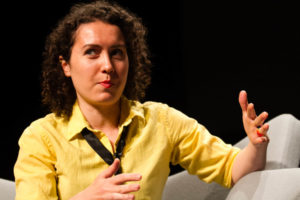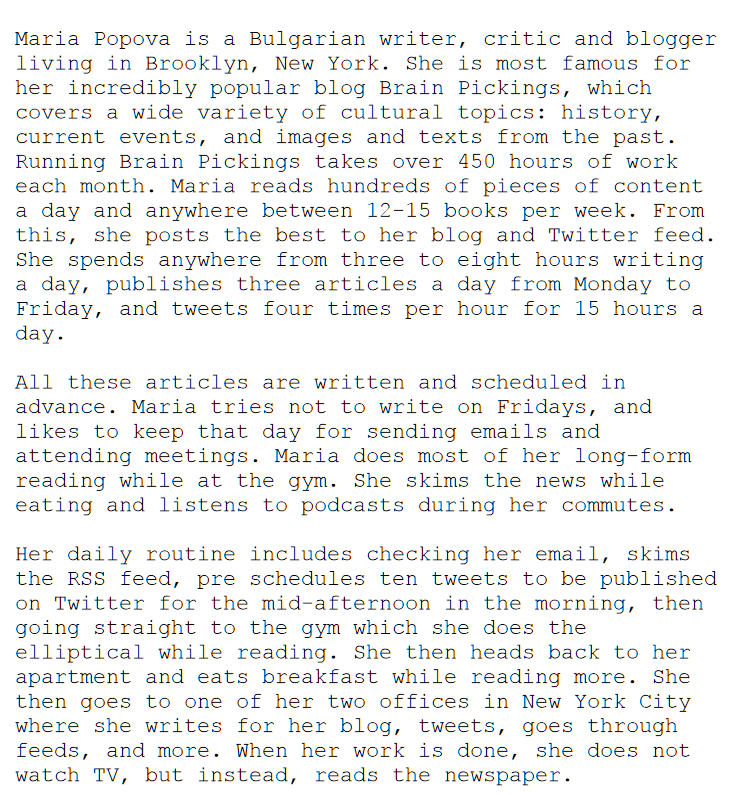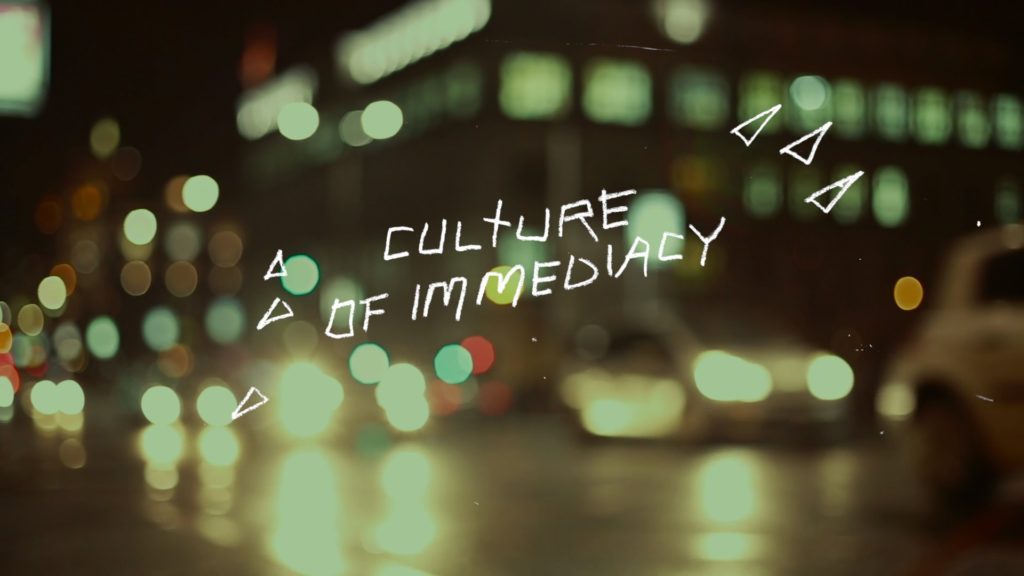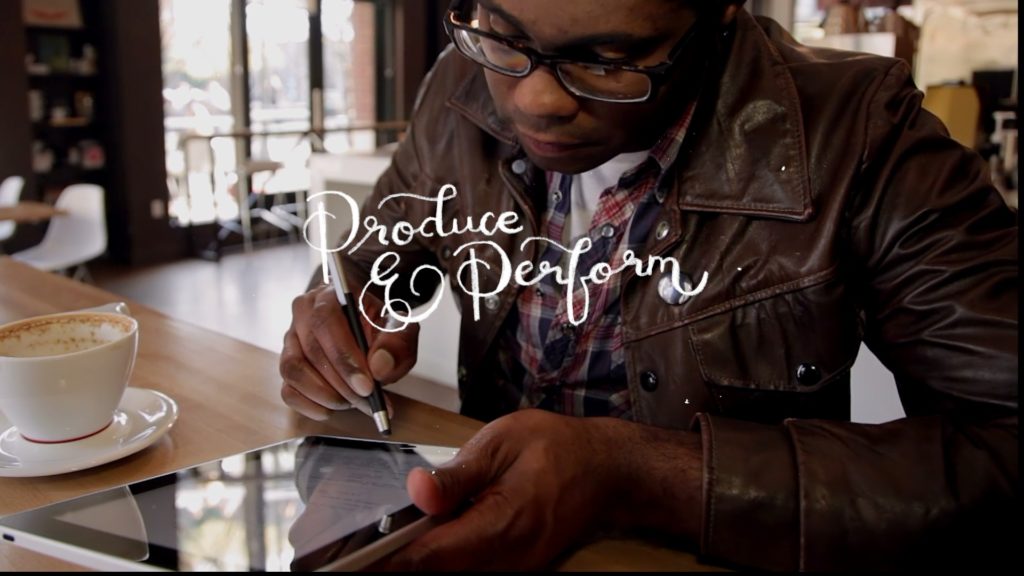-
FCE- Introduction
-
First (FCE) Exam: General OverviewLecture1.1
-
Computer Based Exam TutorialLecture1.2
-
The Cambridge English Scale: ResultsLecture1.3
-
FCE Score: How to calculateLecture1.4
-
Preparing for the exam: What should you know?Lecture1.5
-
-
Paper 1- Reading and Use of English
-
Introduction to the Reading and Use of English section of the FCE examLecture2.1
-
Developing reading skills: skimming, scanning, and reading for detailLecture2.2
-
General Information and Tips- Reading and Use of English- Paper 1Lecture2.3
-
Tips: Part 7- Multiple Matching- Reading and Use of EnglishLecture2.4
-
Practice Part 7-Multiple Matching- Reading and Use of EnglishLecture2.5
-
Tips Part 4-Key Word Transformation- Reading and Use of EnglishLecture2.6
-
More Tips Part 4- Key Word Transformation- Reading and Use of EnglishLecture2.7
-
Practice Part 4- Key Word Transformations- Reading and Use of EnglishLecture2.8
-
Tips Part 6- Gapped Text- Reading and Use of EnglishLecture2.9
-
Practice Part 6- Gapped Text- Reading and Use of EnglishLecture2.10
-
Tips Part 3-Word Formation- Reading and Use of EnglishLecture2.11
-
Practice Part 3- Word Formation-Reading and Use of EnglishLecture2.12
-
Tips Part 5- Multiple Choice- Reading and Use of EnglishLecture2.13
-
Practice Part 5- Multiple Choice- Reading and Use of English-Lecture2.14
-
Tips Part 1- Multiple Choice Cloze- Reading and Use of EnglishLecture2.15
-
More Tips Part 1- Multiple Choice Cloze- Reading and Use of EnglishLecture2.16
-
Practice Part 1- Multiple Choice Cloze- Reading and Use of English-Lecture2.17
-
Tips Part 2- Open Cloze- Reading and Use of EnglishLecture2.18
-
More Tips Part 2- Open Cloze- Reading and Use of EnglishLecture2.19
-
Practice Part 2- Open Cloze- Reading and Use of EnglishLecture2.20
-
General Overview and Tips- Reading and Use of EnglishLecture2.21
-
General Review- Reading and Use of EnglishLecture2.22
-
Paper 1 Practice- Reading and Use of EnglishLecture2.23
-
More Tips and Practice- Part 1- Multiple Choice Cloze-Reading and Use of EnglishLecture2.24
-
More Practice- Part 1- Multiple Choice Cloze- Reading and Use of EnglishLecture2.25
-
More Practice- Part 1- Multiple Choice Cloze- Reading and Use of EnglishLecture2.26
-
More Practice- Part 1- Multiple Choice Cloze- Reading and Use of EnglishLecture2.27
-
More Tips and Practice- Part 2- Open Cloze- Reading and Use of EnglishLecture2.28
-
More Tips and Practice- Part 3- Word Formation- Reading and Use of EnglishLecture2.29
-
More Tips and Practice- Part 4-Key Word Transformation-Reading and Use of EnglishLecture2.30
-
More Practice- Part 4- Key Word Transformation- Reading and Use of EnglishLecture2.31
-
More Practice- Part 4- Key Word Transformation- Reading and Use of EnglishLecture2.32
-
More Practice- Part 4- Key Word Transformation- Reading and Use of EnglishLecture2.33
-
More Tips and Practice- Part 5- Multiple Choice- Reading and Use of EnglishLecture2.34
-
More Practice- Part 5- Multiple Choice- Reading and Use of EnglishLecture2.35
-
More Tips and Practice- Part 6- Gapped Text- Reading and Use of EnglishLecture2.36
-
More Practice- Part 6- Gapped Text- Reading and Use of EnglishLecture2.37
-
More Tips and Practice- Part 7- Multiple Matching- Reading and Use of EnglishLecture2.38
-
Protegido: Sample Paper Test- Reading and Use of English 01 hour 15 minLecture2.39
-
-
Grammar
-
Dynamic vs Stative Verbs- MN Video- Listening- Grammar FocusLecture3.1
-
Dynamic vs Stative Verbs – Quiz – Practice Focus 10 questionsQuiz3.1
-
Verb + Gerund- Reading and Writing- Grammar FocusLecture3.2
-
Verb + Infinitive- Reading and Writing- Grammar FocusLecture3.3
-
Verb + Gerund/Infinitive- Reading and Writing- Grammar FocusLecture3.4
-
Verb + Gerund/Infinitive- Reading and Writing- Grammar FocusLecture3.5
-
The Use of Articles (a/an/the)- Reading and Writing- Grammar FocusLecture3.6
-
-
Vocabulary
-
Vocabulary development and strategies for word formation and collocationsLecture4.1
-
Vocabulary- Learning TipsLecture4.2
-
Collocations- Part 1Lecture4.3
-
Collocations- Part 2Lecture4.4
-
Collocations- Part 3Lecture4.5
-
Collocations- Part 4Lecture4.6
-
Collocations- Part 5Lecture4.7
-
Prefixes and Suffixes- Part 1Lecture4.8
-
Word Formation -“-ed” vs “-ing”Lecture4.9
-
Phrasal Verbs (1): meanings and typesLecture4.10
-
Phrasal Verbs (2): SeparabilityLecture4.11
-
-
Paper 2- Writing
-
Writing- Preparing for the examLecture5.1
-
Writing- Some Common QuestionsLecture5.2
-
Writing- Dos and Don’tsLecture5.3
-
Writing- How is FCE Writing Scored?Lecture5.4
-
Informal Letter/Email- Writing GuideLecture5.5
-
Informal Email/Letter- Sample and TipsLecture5.6
-
Informal Letter or Email-Tips/Sample questions and answersLecture5.7
-
Informal Email/Letter- Sample and PracticeLecture5.8
-
Formal Email/Letter – Steps to WritingLecture5.9
-
Letter of Application- Writing GuideLecture5.10
-
Letter of Application- Understanding and ModelLecture5.11
-
Letter of Application- Sample and PracticeLecture5.12
-
Letter of Application-Writing Topics- PracticeLecture5.13
-
Formal and Semi-formal Letter/ Email- Tips and SamplesLecture5.14
-
Email/Letter General Writing GuideLecture5.15
-
Article- Steps to WritingLecture5.16
-
Article- Writing Guide,Tips and Sample Questions and AnswersLecture5.17
-
Article- How to Write an Article- VideoLecture5.18
-
Article- Writing Topics- PracticeLecture5.19
-
Essay- Writing GuideLecture5.20
-
Writing Essays for the FCE- Types and OrganizationLecture5.21
-
Essay- Writing Guide, Tips and Sample Questions and AnswersLecture5.22
-
Essay- Tips and SamplesLecture5.23
-
Essay- Samples,Tips, and PracticeLecture5.24
-
Review- Writing Guide, Tips, and Sample Questions and AnswersLecture5.25
-
Review- Steps to Writing and TipsLecture5.26
-
Review- Tips and SampleLecture5.27
-
Review- Tips and SampleLecture5.28
-
Review- Sample Questions- PracticeLecture5.29
-
Report- First Steps to Writing a ReportLecture5.30
-
Report- Writing GuideLecture5.31
-
Report- Writing Sample Questions-PracticeLecture5.32
-
Writing-10 B2 First Writing Exam TipsLecture5.33
-
Writing- B2 First Writing ChecklistLecture5.34
-
Protegido: Writing- B2 First Writing Sample Paper Test Parts 1 and 2 01 hour 20 minLecture5.35
-
Writing Essays- 5 most common mistakesLecture5.36
-
-
Paper 3- Listening
-
FCE Listening- Introduction and General TipsLecture6.1
-
FCE Listening- Do’s and Dont’sLecture6.2
-
FCE Listening Tips- Part 1- Multiple ChoiceLecture6.3
-
Listening Practice- Part 1- Multiple ChoiceLecture6.4
-
Listening Practice- Part 1- Multiple ChoiceLecture6.5
-
Listening Practice- Part 1- Multiple ChoiceLecture6.6
-
FCE Listening Tips- Part 2- Sentence CompletionLecture6.7
-
Listening Practice- Part 2- Sentence CompletionLecture6.8
-
Listening Practice- Part 2- Sentence CompletionLecture6.9
-
Listening Practice- Part 2- Sentence CompletionLecture6.10
-
FCE Listening Tips- Part 3- Multiple MatchingLecture6.11
-
Listening Practice- Part 3- Multiple MatchingLecture6.12
-
Listening Practice- Part 3- Multiple MatchingLecture6.13
-
Listening Practice- Part 3- Multiple MatchingLecture6.14
-
Listening Practice- Part 3- Multiple MatchingLecture6.15
-
FCE Listening Tips- Part 4- Multiple ChoiceLecture6.16
-
Listening Practice- Part 4- Multiple ChoiceLecture6.17
-
Listening Practice- Part 4- Multiple ChoiceLecture6.18
-
Listening Practice- Part 4- Multiple ChoiceLecture6.19
-
Protegido: Listening- Sample Paper Test 1Lecture6.20
-
Protegido: Listening- Sample Paper Test 2Lecture6.21
-
-
Paper 4- Speaking
-
Varieties of EnglishLecture7.1
-
Speaking- Preparing for the examLecture7.2
-
Speaking- Some More TipsLecture7.3
-
Speaking- Some Common QuestionsLecture7.4
-
Speaking- Do’s and Don’tsLecture7.5
-
Speaking- Examiners CommentsLecture7.6
-
Speaking- Exam AssessmentLecture7.7
-
Speaking Part 2- Exam Tips and PracticeLecture7.8
-
Speaking Part 2- PracticeLecture7.9
-
Speaking Part 2- PracticeLecture7.10
-
Speaking Part 3- Exam Tips and PracticeLecture7.11
-
Speaking Parts 3 and 4-Exam Tips and PracticeLecture7.12
-
Speaking Part 1- Exam Tips and PracticeLecture7.13
-
Speaking Part 1- PracticeLecture7.14
-
Speaking Part 1- PracticeLecture7.15
-
Speaking Exam ReviewLecture7.16
-
Speaking Test PracticeLecture7.17
-
-
Topic Related Activities
7 Things I learned in 7 Years of Reading, Writing, and Living
In 7 Things I Learned in 7 Years of Reading, Writing, and Living, Maria shares her reflections on living a life that fulfills your heart, mind, and spirit.
Look at the her picture and answer the questions

- What type of person do you think she might be?
- What job do you think she does?
- What does she like doing in her free time?
Read the article about the person. Then answer the questions above again.

What do you think of Maria’s lifestyle?
You are going to watch a short film called Seven Things I Have Learned in Seven Years of Reading, Writing and Living in which Maria reflects on what she has learned since she set up her website Brain Pickings seven years ago. Before you watch answer what Maria might have learned in these seven years.
BEFORE YOU WATCH
Look at each screenshot from the film one by one; look for the meaning of any vocabulary you don’t understand, and write what you think each image and caption refers to and what Maria says.
Screenshot 1

Screenshot 2

Screenshot 3

Screenshot 4

Screenshot 5

Screenshot 6

Screenshot 7

WATCH THE VIDEO
There are seven segments in the video. Watch the first segment without sound and pause. From the images and captions you see write what Maria might be saying about what she has learned. Repeat the process for the other six points.
Now watch the film with sound. As you watch and listen compare what Maria says about what she has learned with your comments in the previous step. Watch the first point, pause the video and compare. Repeat the process for the other six points.
Do you agree with the points Maria makes?
Read the transcript of the video. As you read your task is to try to understand the points Maria makes and underline any vocabulary you don’t understand.
1. Allow yourself the uncomfortable luxury of changing your mind.
2. Do nothing for prestige or status or money or approval alone.
3. Be generous.
4. Build pockets of stillness into your life.
5. When people tell you who they are, Maya Angelou famously advised, believe them.
6. Presence is far more intricate and rewarding an art than productivity.
7. “Expect anything worthwhile to take a long time.”
Watch the video again after reading the transcript. Could you understand it better?
Listen to the film and read the transcript at the same time. As you listen underline the words or phrases you want incorporate in your vocabulary list. Repeat the process with the other six points.
AFTER YOU WATCH
Choose one of Maria Popova’s reflections, listen to it several times and then record yoursel saying it on a mobile device. Send me the audio so I can give you feedback on your pronunciation.

